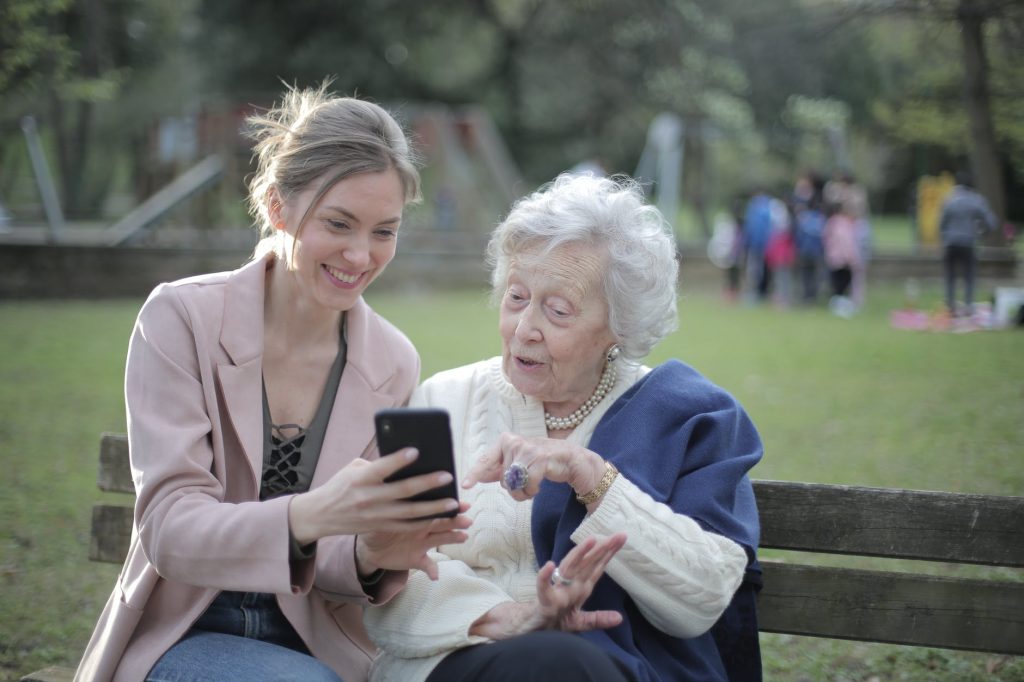This is a free essay sample available for all students. If you are looking for custom essays for sale on the topic “Does Technology Make Us More Alone”, browse our private essay samples.
Introduction
Technology is gradually changing the way we live. With the constant influx of new gadgets and platforms that make life easier, it is safe to say that these welcome essentials have revolutionized the way we understand efficiency.
But the same reason behind our conveniences is also criticized for its seemingly negative impact. is technology making us lonely? The author of this argumentative essay explores the side of the affirmative and shares her reasons.
Need help with that dreaded essay assignment? Allow our essay writing services to make your life easier. Contact us for details of our packages and rates.
Technology and Human Interaction: Do They Go Together or Against Each Other?
A lot has been said about how technology makes modern life better. In fact, we sing praises every time a new gadget or service is rolled out for our convenience. From the Internet and social media to progressive audio equipment and artificial intelligence, the kind of tech available to us today ranges from the day-to-day essentials to the specialty must-haves for hobbyists and businessmen.
Despite all the accolades it receives on how it’s creating innovative pathways to a seamless future, one big concern that looms as heavily as a dark cloud is its effect on social connections. Does technology promote loneliness? It is really very easy to say that it doesn’t because it actually works to enhance your network and ability to send and receive messages. But is it really a vital alternative to face-to-face conversations?

I firmly believe that while we have benefited greatly from the features of technology, it tends to make us feel more isolated than ever. I don’t believe that real socializing can take place without physical interaction.
Online Conversations vs. Real-Life Interactions
The first argument against this premise would be the existence of social media and messaging apps such as Facebook, Instagram, Twitter, TikTok, WhatsApp, Viber, and Telegram. These all have the capacity to create and sustain conversations without ever having to meet the other person. On one hand, it is now much easier and faster to communicate, as messages are sent and received in real-time. Messages are documented, which provides a sense of nostalgia for friendships and a sense of security for the workplace. You no longer have to wait for people to be physically available to meet up, and you can stay connected with old friends virtually.
On the other hand, the thought of having a conversation with someone on a screen and not in a coffee shop can make us more alone in emotion. There is something very isolating about sitting in front of the screen by yourself. Moreover, very little body language can be transmitted through a screen so the quality of the conversation lessens and it becomes harder to read emotions and gestures.
Social Interaction and Screen Fatigue
By now, most people are familiar with “conversation rooms” and “breakout groups” that can be used in most videoconferencing apps. These even come with a host of features, such as emojis to express yourselves, reaction buttons, chat boxes, and more. Therefore, it must be easy to champion good communication and healthy interactions online, right?
I beg to disagree. While great attempts have been made by these online platforms to replicate the face-to-face experience, it can still never replace physical interactions. One of the things that can bog down these video conferences is a bad Internet connection, which is bound to happen at any point in time. When this happens, screens freeze, people get logged out, messages get lost in translation, and conversations lose momentum.
When the Wi-Fi fails to be restored, this then ends the interaction and it can be difficult to pick it back up. This feels even more isolating when you are the only one who experiences a bad connection. Everyone continues their merry conversation, and you are left out in the process.
There are also people who simply find videoconferencing socially awkward. They are introverts to begin with, and easily get tired with small talk and major interactions with people physically. This amplifies virtually as well. There is a term called “screen fatigue,” where people are only able to stay on video calls for a certain period of time before feeling drained.
The reason for this is that our brains work overtime to interpret and decipher communication signals on the screen. Whereas in-person it can take off from many kinds of cues, including body language, onscreen it is limited to audio and words. This is the reason why we get tired more easily doing conference calls with people who usually energize us in person.
Social Media is Polarizing and Brings Out Insecurities
Social networking has long been praised for increasing everyone’s spheres of influence. It has enlarged our circles and enabled us to reconnect with people we haven’t seen or spoken to in a long time. However, because it is a free-for-all platform for expressing our truths, it also has an ugly side. These platforms have been used to divide people and condemn those who believe differently from them. Those who are not as good in communicating don’t feel comfortable engaging online, so they often retreat and keep things to themselves. Not being engaged can lead to further isolation.
At the same time, these platforms also inherently cause people to compare themselves with others. They look at their feeds and see perfect people with seemingly perfect lives and feel even more alone. It also makes them feel envious and dissatisfied with their current lives. It becomes better for them just to do things on their own because they feel that they can’t match up with their friends and favorite influencers. Isolation can breed depression and anxiety. It is very easy and effortless for social media to trigger your self-doubt and insecurities, without you realizing that these people who you think are perfect are also masquerading and filtering out their own struggles.

Also, I believe that not only is technology isolating, it also is a barrier to authenticity. It is easy to hide behind filtered profile pictures, perfect grammar, and witty graphics. It is also easy to pretend to be someone else because you can’t accept the way you are. The reality is that many people use technology as a way to feel better about themselves. As a result, they end up feeling even more lonely and inadequate. Sometimes they even feel judged, bullied, and dismissed when they come across bad characters. It is equally easy to be mean to others when you are hiding behind your screen.
At the end of the day, I believe and accept that technology serves a purpose. But I disagree that one of these main purposes is to make us feel more connected. Yes, it may help enhance relationships and connections when used in the right way, but we cannot solely rely on them to sustain them. We are human beings, and we need to see fellow human beings face-to-face if we are to truly connect with them in a meaningful way.
Conclusion: A Healthy Social Life is a Face-to-Face One
I ultimately believe that were designed to relate with each other physically. That’s why we have different “languages” and we utilize various parts of our body to communicate. Without the physical component, we will anchor all our hopes of healthy relationships on technology. This is a dangerous thing to do because only humans were designed to interact in the way we know. No artificial intelligence or messaging platform can replicate it.